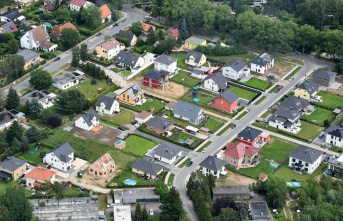To secure Europe's energy supply, a third gas pipeline from Spain to France could be completed within a year. The head of the most important Spanish gas network operator Enagas, Arturo Gonzalo Aizpiri, told the German Press Agency on Tuesday: "From a purely technical point of view, the actual construction of an infrastructure of this type takes about a year after all approvals have been received." The damage to Nord Stream 1 and 2 made the Midcat pipeline even more important.
French President Emmanuel Macron opposes the project. France does not want to become a major gas importer, he cited as one reason. Macron also recently spoke of five to eight years of construction. This week, shortly before the EU summit on Thursday, there should be a meeting between the heads of government of Spain and Portugal, Pedro Sánchez and António Costa, and Macron in Paris, said Aizpiri. According to the gas manager, a common European energy market is essential for the security of supply for everyone and is above the interests of individual countries.
From Barcelona to Barbaira
The Midcat pipeline, also advocated by Chancellor Olaf Scholz together with Sánchez and Costa, is to run from Barcelona via the Pyrenees to the connection to the French network in Barbaira in southern France. In Spain, the tube is finished up to 106 kilometers south of the border, in France about 120 kilometers are missing. The project was canceled in 2017 due to lack of profitability.
The natural gas that is to flow north through the pipe could be obtained from different sources by Spain and Portugal. Both countries together have a total of seven liquid gas terminals. There are also two pipelines to the gas supplier Algeria in North Africa.
As early as 2030, the tube could then be switched from fossil natural gas to so-called green hydrogen, which is produced with the help of solar or wind energy, said Aizpiri. The EU's plan to transform Europe's energy system, known as the "REPowerEU" plan, envisages the production of 20 million tonnes of green hydrogen by 2030, half in Europe and the other half outside the continent. The manager estimates that two million tons of this could be produced in Spain.
Midcat and other tube connections in Europe are also important because transporting hydrogen over long distances by ship is difficult, but it is two to four times cheaper by pipeline than transporting electricity by high-voltage lines, Aizpiri said. The European Hydrogen Backbone Initiative (EHB) 31 European gas network operators assume a transport price of 0.11 to 0.21 euros per kilogram per 1000 kilometers. The EHB envisages five potential hydrogen corridors in order to achieve the European hydrogen targets for 2030. One of them is the long stretch from the Iberian Peninsula through France towards Germany.







